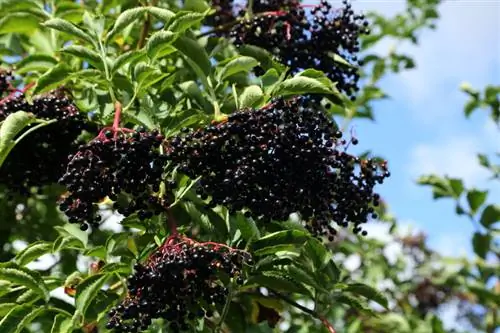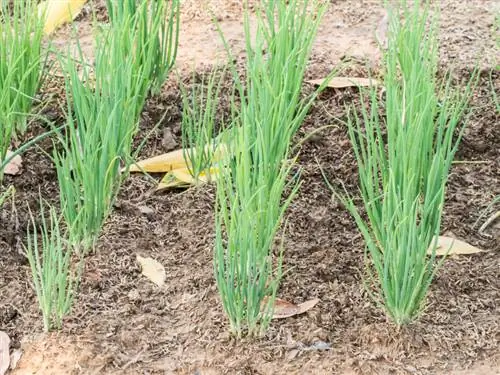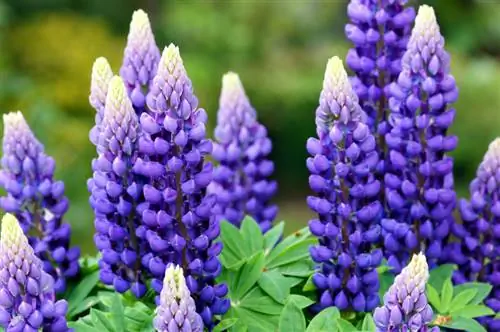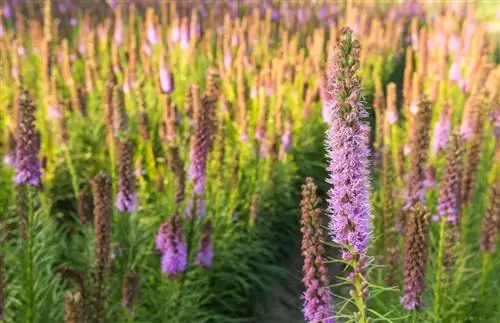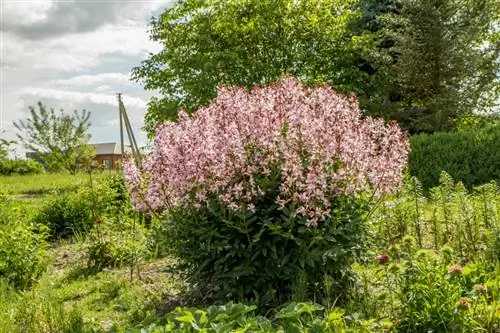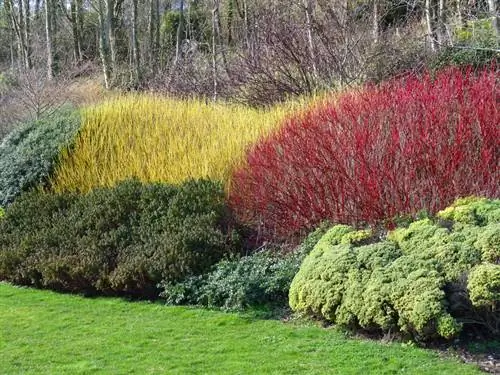- Author admin leonars@hobbygardeners.com.
- Public 2023-12-16 16:46.
- Last modified 2025-01-23 11:20.
Anyone who considers the natural occurrence of a black elderberry will recognize its remarkable flexibility when it comes to suitable site conditions. In the wild it can be found just as often in humus-rich forest clearings as it is on poor, rather dry ruderal areas. The wild fruit tree achieves its optimum in the garden at this location:
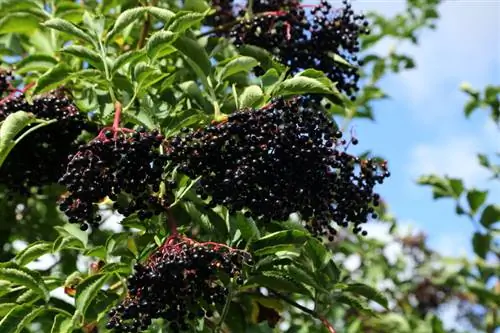
Where should black elderberry be planted?
The optimal location for black elderberry is a sunny to partially shaded garden spot with humus, nutrient-rich soil, good water permeability and fresh moisture. A neutral to slightly alkaline soil pH is also important. Make sure there is a minimum distance of 200-300 cm to masonry and paving.
- sunny to partially shaded garden spot
- humous soil, rich in nutrients
- well permeable to water and fresh and moist
- neutral to slightly alkaline pH value of the soil
In addition to the light and soil conditions, the appropriate distance to paved paths, terraces, buildings and neighboring properties also comes into focus when choosing a location. Since black elderberry is a shallow-rooted plant, it also has a considerable tendency to spread underground. Therefore, consider a minimum distance of 200-300 centimeters from masonry and paving so that the roots do not cause any damage.

